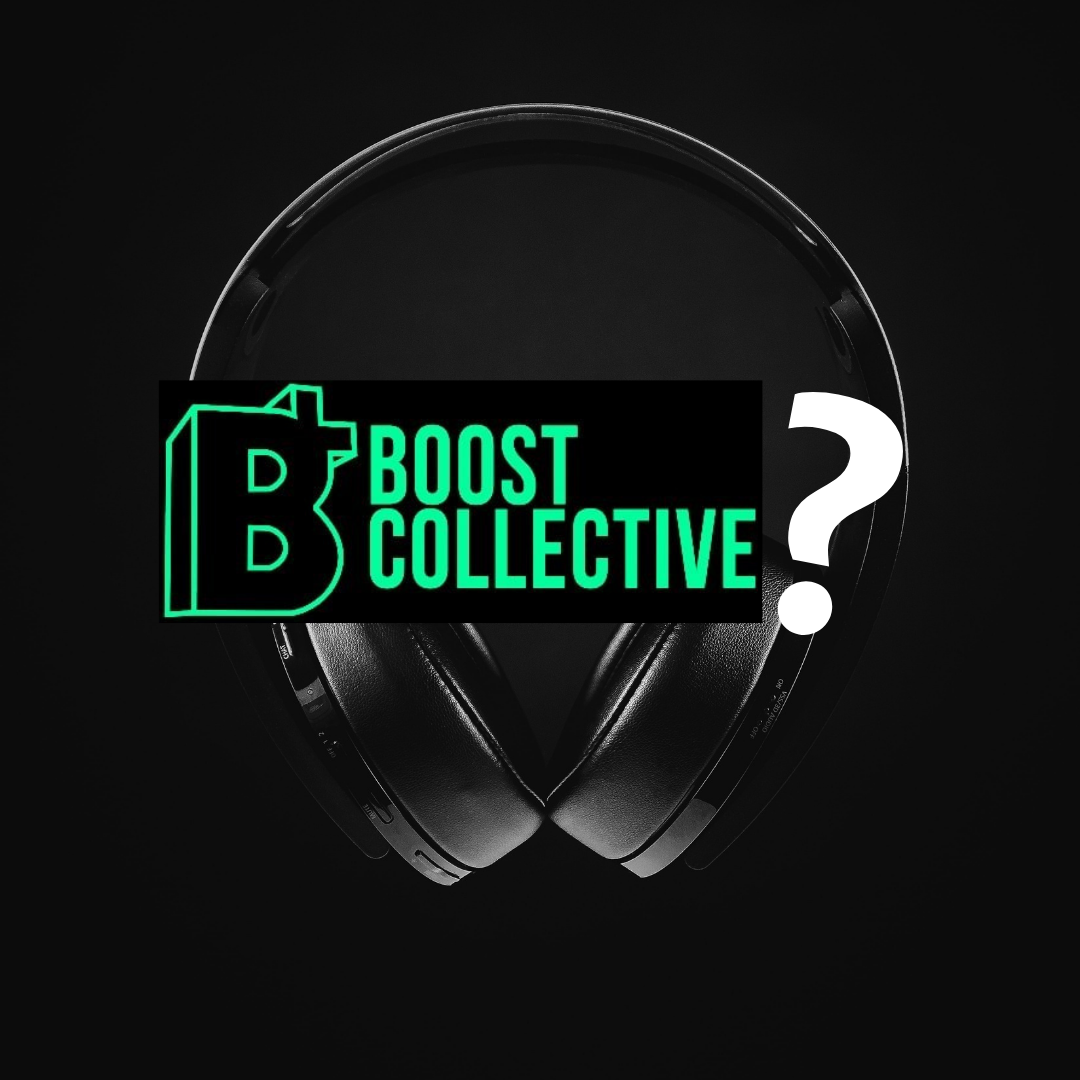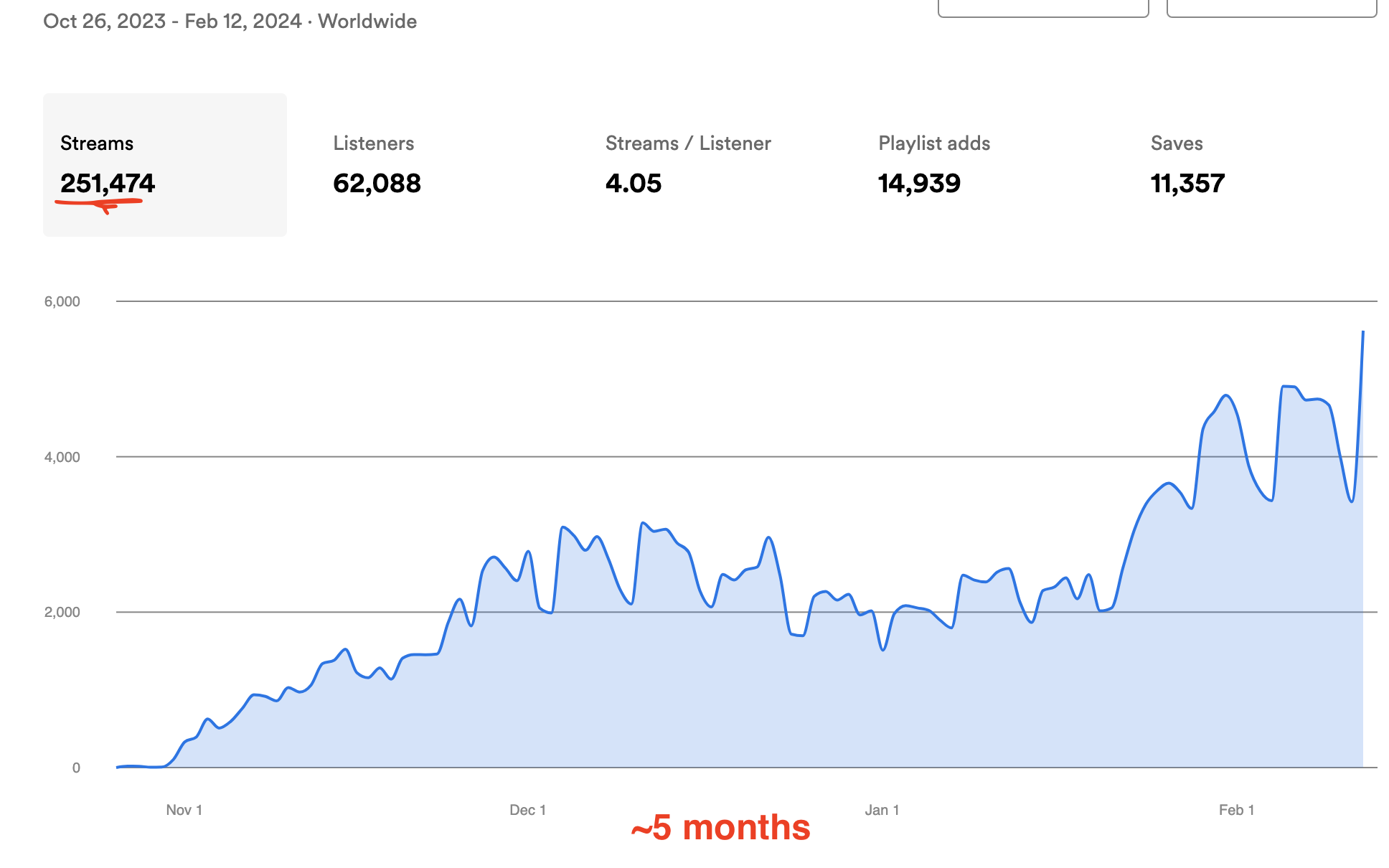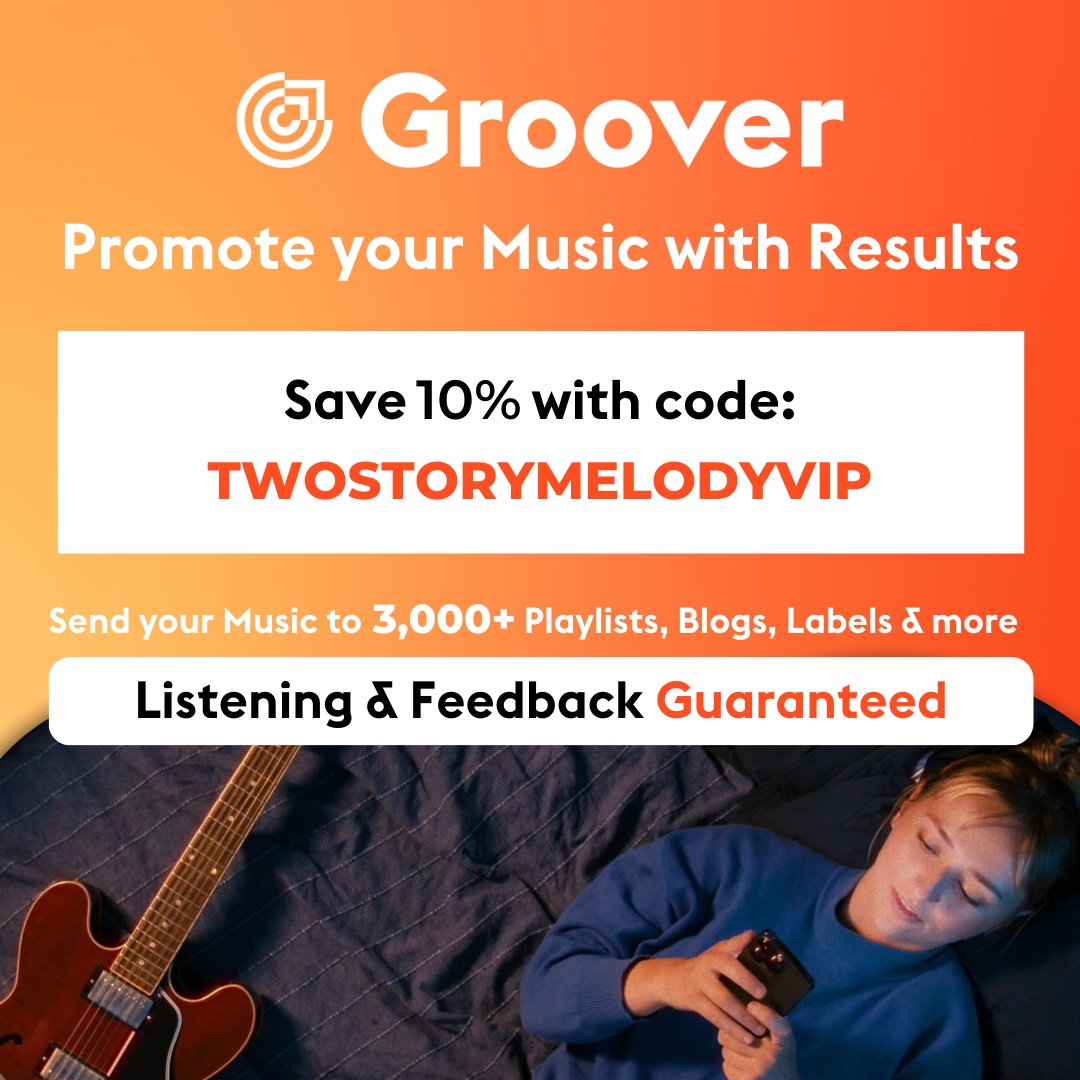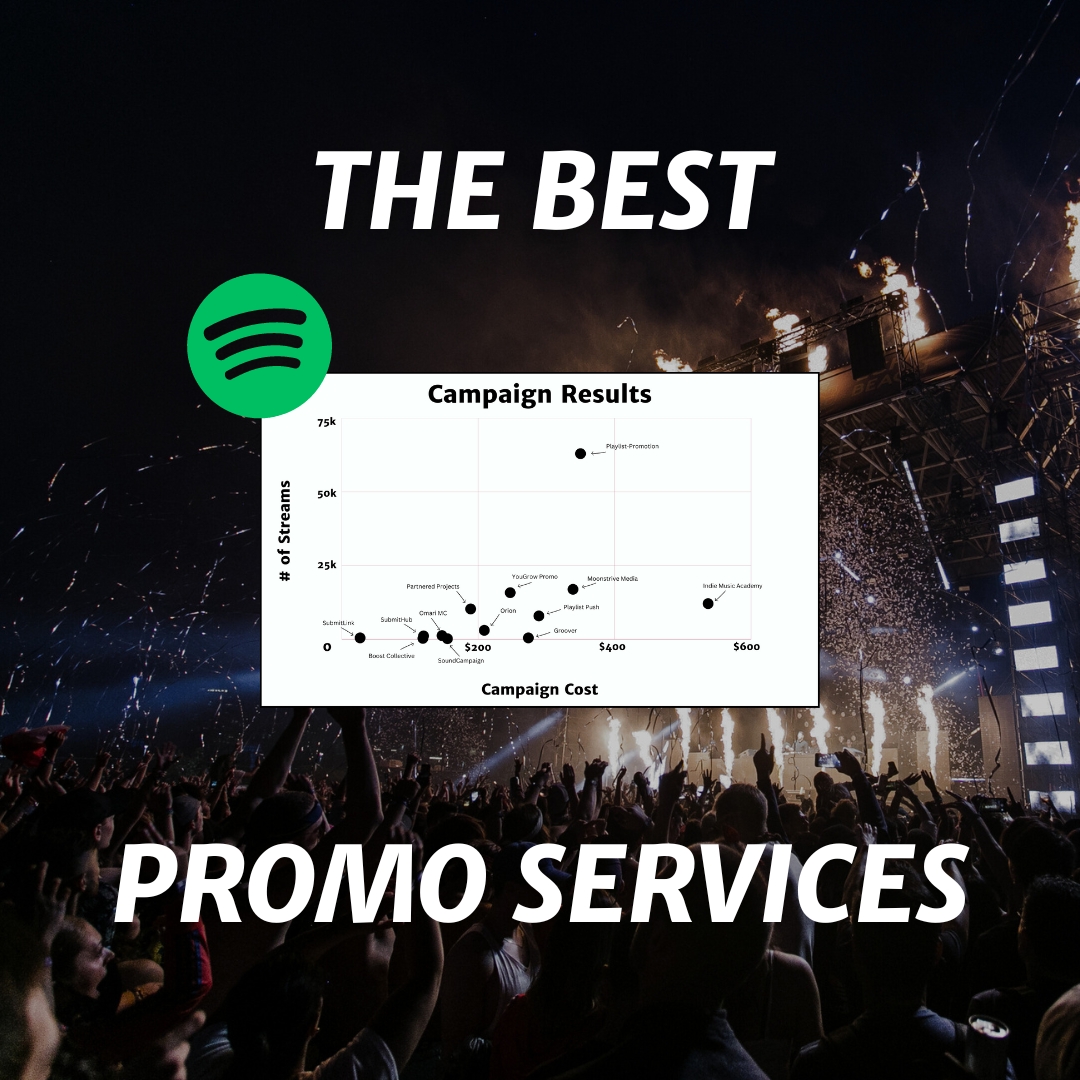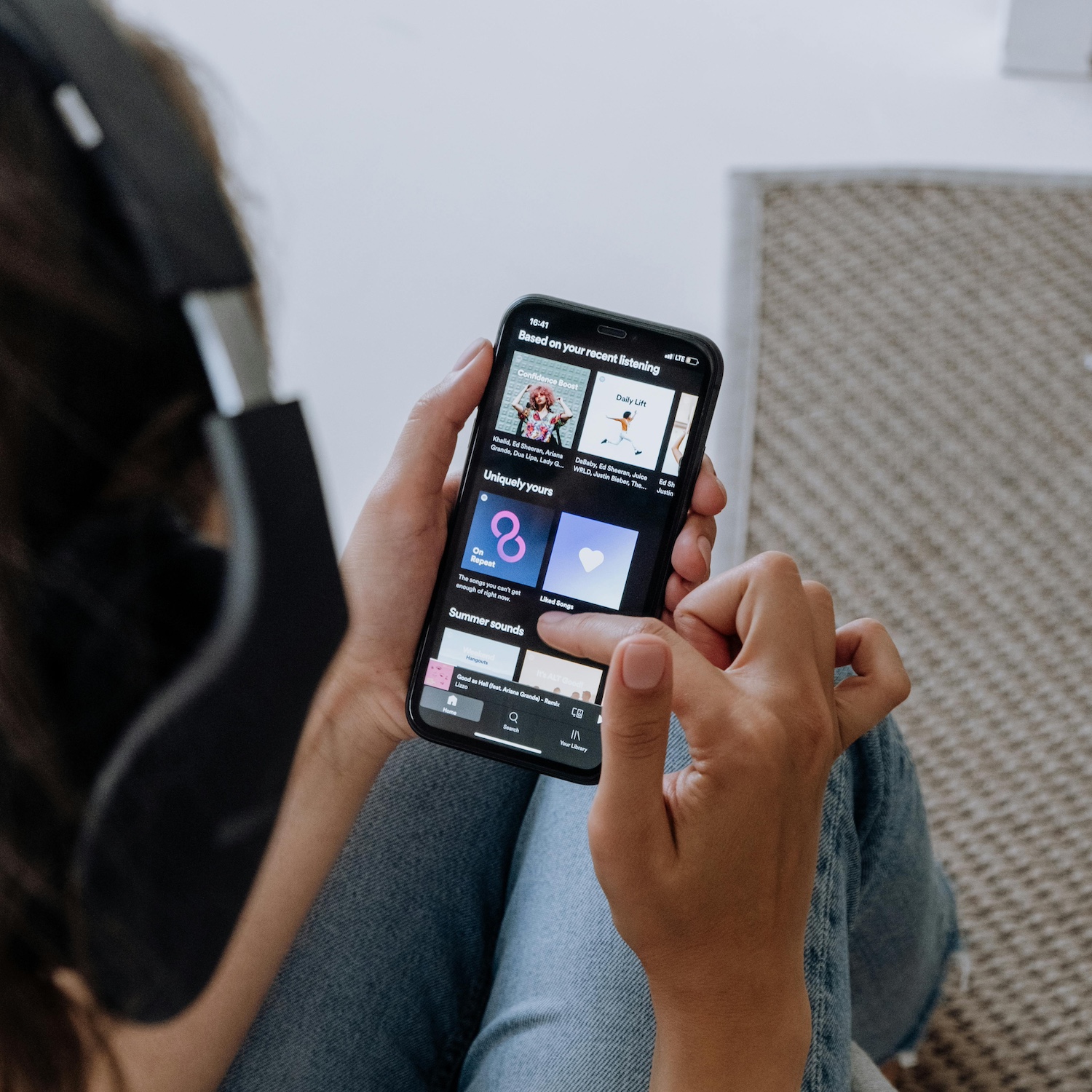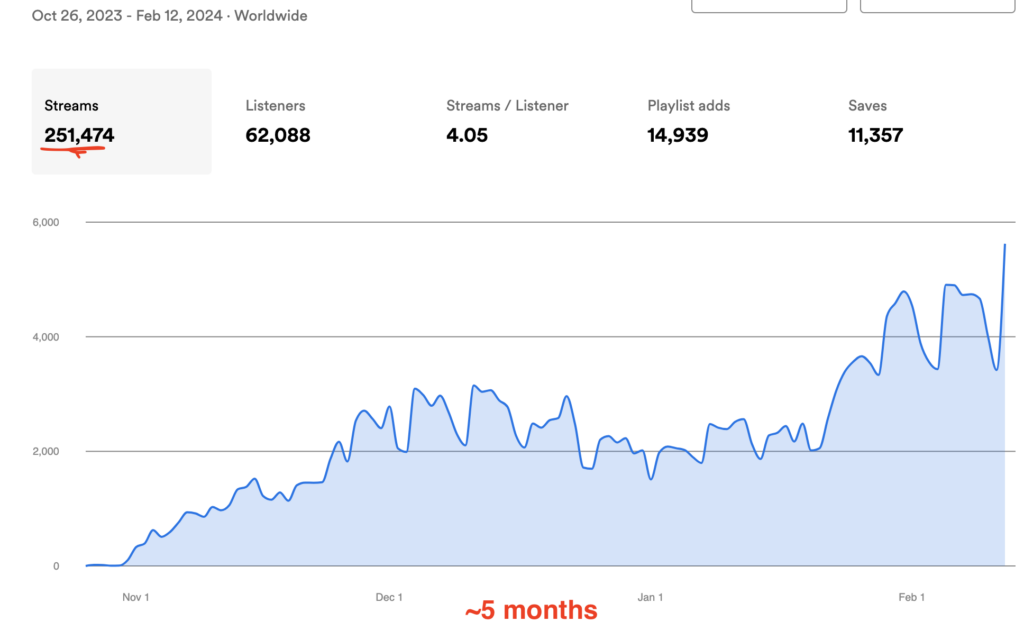Yes, Boost Collective is legit.
They distribute music to stores like Spotify and Apple Music. They aren’t as established as some of the other music distributors you’ve almost certainly heard of, like CD Baby or DistroKik. They’re an up-and-comer in the space.
But they legitimately get your music into stores at no upfront cost, and on top of that, they legitimately offer a bunch of free services, too. I’ve personally used their Spotify promotion and I’ve talked with the co-founders of the company, Damien and Ronan. They’re legit.
Whether their model makes sense for you is another question.
Let’s get into the details of that below.
First up, it’s probably worth clarifying…
What is Boost Collective?
Because, if you’ve heard of Boost Collective before now, there’s a good chance that you associate them with Spotify playlist promotion. That’s understandable; right up until 2022, that’s basically what they did (although, to be fair to their marketing materials, they’ve always branded themselves a bit more broadly).
I actually first heard of Boost Collective when Damian, one of the co-founders at the company, reached out to me asking if I’d review their Spotify promotion service. I said yes, and they ran a campaign for one of my artists that resulted in a few decent playlist adds (more on that experience below).
But, since then, the company has pivoted.
They still do Spotify promotion, but they now brand themselves as an “all-in-one development platform that is free to use” – and the focus of the platform is on music distribution. Here’s how I’d describe them today:
Boost Collective is a music distribution company that offers unlimited free releases and an additional suite of marketing services, including Spotify promotion.
You read that right. They offer unlimited free releases. You can put as many songs as you want onto Spotify, Apple Music, Amazon Music, etc., and you won’t pay a dime upfront.
But let’s be honest: You and I both live with the suspicion that nothing except your mother’s love is ever totally free (and we suspect that even your mom will probably make you pay rent if you live in the basement for long enough). It certainly looks like you won’t pay upfront to distribute your music through Boost Collective – but it there a catch?
Let’s get into the nuts and bolts.
How does Boost Collective work?
You can see a breakdown of all of the service’s features in this handy Google doc that the company sent me, but if you just want the gist here it is:
Boost Collective distributes music to 150+ stores for no upfront cost with the expectation that artists will eventually pay for additional products and services. As Damien explained to me on our call, they work with the assumption that having more people in their community will pay off in the long-term, regardless of whether the average artist pays them anything.
Importantly, artists retain full copyrights to their songs.
Here’s how they break things down on their website:
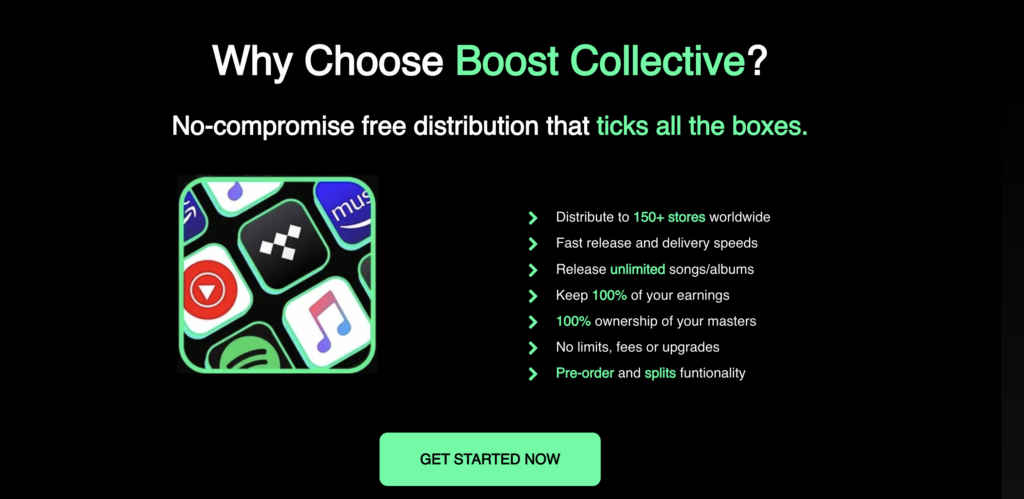
(If that’s small for you, I think you should be able to click the image to blow it up.)
I talked with Ronan, who’s also a co-founder at the company, and his explanation of the model was that Boost Collective hopes to grow with artists by aligning incentives. They’ll essentially lose money on artists that are just starting out (because they don’t charge anything upfront), but as artists grow and invest in promotion, Boost Collective and their artists will win.
Personally, I think this is a really interesting offer. And it only works because distribution is far from the only service the platform provides.
What services does Boost Collective offer?
As mentioned above, for the past few years, Boost Collective has gotten name recognition for their Spotify promotion – and, yes, they still do Spotify promotion.
But that service is now essentially free for artists who release through their platform; you get credits for each release you submit, and you can spend those credits on a variety of services.
Those include:
- Spotify promotion
- Music mastering
- Graphic design (including cover art creation and video creation)
- Music marketing courses
And remember, all of that is done / accessed from inside of the company’s music distribution platform.
Is Boost Collective’s Spotify promotion legit?
I think it’s worth breaking out the legitimacy of Boost Collective’s Spotify promotion separately, because, given their history, there’s a good chance that you’re considering using them in large part for their Spotify offering.
Here’s my honest opinion:
Yes, Boost Collective’s Spotify promotion is legit. But it’s not the best playlist pitching service on the market.
Again, I first heard of Boost Collective when they reached out to me asking if I’d try their Spotify promotion service. I did try their service, and I felt good enough about the results to add Boost to my (controversial!) post on the best promo companies. I’ve currently got them in my seventh spot, right behind the more straightforwardly-named Playlist Promotion.
“Cool, so what were your results?” you’re wondering.
Fair question.
We ran a campaign for a blues-groove track, and we got about 2,000 streams thanks to placements on several playlists with names like “Bedroom Jams” and “New School Pop”. From what we could tell looking at Chartmetric data, the playlists (and the streams they drove) were legitimate – meaning they weren’t botted. The song was on the lists for about a month, and when it was taken off, we didn’t see a significant algorithmic bump either way.
All told, those results are solid, if not spectacular. I’ve seen better and I’ve definitely seen worse.
I also think it’s worth noting that Boost Collective relies pretty heavily on playlists they’ve created themselves. Most of my top choices for promo don’t. If you choose Playlist Push, for example, you’ll get pitched to curators within their network, but you won’t be getting added to lists that Playlist Push actually curates and controls directly. I tend to prefer that model – the curator-centric one – over the company-built-playlist model, for two reasons:
- When a company builds playlists and then charges artists to be added to them, it’s uncomfortably close to payola, and you’re entering into sketchy territory with Spotify’s terms of service.
- When a company builds playlists, those playlists are often lower-quality than curator-built playlists, because companies are (ostensibly) placing songs for money, while curators are (ostensibly) placing songs for the love of music.
Now, here’s the thing with Boost Collective: 1) Their Spotify playlist promotion is basically free, so it’s quite literally not payola, and 2) I know that they do filter submissions for quality and that they drive legitimate list engagement with Instagram ads.
I still don’t think the company-list-centric model is the best playlist promo model. But it does allow companies like Boost Collective to retain more control over their campaigns, and when it’s free, it’s hard to complain.
Long-story-short: Boost Collective is a solid option for Spotify promotion that will drive real streams – and given the fact that their promotion is included for free when you use them for distribution, it’s potentially a great deal.
(Final note on this: They do still offer Spotify promotion as a standalone service, and if you want to, you can try it here.)
Is Boost Collective right for me?
Okay, let’s cut to the chase. Yes, Boost Collective is legitimate, and yes, they offer legitimate Spotify promotion – but are they right for you?
Here’s my take:
Boost Collective is probably right for you if you’re a rising artist who is planning to release a lot of music.
(And there’s an even better chance they’re right for you if you’re in the hip-hop / EDM / pop genres).
It literally doesn’t cost any money to get started – and when you’re getting started, that fact is very appealing. You can put out as many songs as you want, you’ll get added to playlists that will drive legitimate streams, and you’ll get access to graphic design tools that’ll make frequent releases easier.
Now, the flip side of that:
Boost Collective probably isn’t the best option if you’re an established artist.
(I’m qualifying “established artist” as anyone who anticipates generating significant revenue from their next release.)
Because while Boost’s other services (Spotify promo, graphic design, and mastering) are legitimate and valuable, none of them are industry-leading options in themselves. The value they promise is in the free bundle of services, but if you’re established and you have the money, you’ll almost definitely want to pay an expert to design your album cover or master your track.
Of course, if you’re reading this, there’s a good chance you aren’t established. And, if that’s the case, it’s worth reminding yourself of the cold reality that the vast majority of releases never recoup the $19.99 distribution fee.
Sure, your next release could blow up. But the odds say it probably won’t. If you’re looking to play the long game and build growth through frequent releases without an upfront cost, I think Boost is probably worth a shot.
Final thoughts on Boost Collective
Hope this review of Boost Collective has been helpful! I want to close with a note for transparency’s sake: I’m kind of rooting for these guys.
That’s because I’ve had a few calls with Damian and Ronan over the past year, and I like their approach to business in general and to the music industry in particular. They’ve got a collaborative mindset, and the proof is in how they’ve aligned their business model incentive with the incentive for their artists to succeed.
It seems like they honestly want artists to win.
Again, the model probably isn’t best for every artist. And there is no company (really, no person) that’s perfect; there are a few suspect Boost Collective reviews on reddit and Trust Pilot. But I’m comfortable in vouching for the company’s overall ethos. They’re good guys, and, as I wrote in my article on the top music distribution companies, I think there’s a chance that what they’re offering is the game-changing music distribution model of the 2020s – the next DistroKid.
If you’ve got experiences with the company, let me know in the comments. And no matter how you choose to move forward with your next release, remember that your music matters.
Here’s wishing you good luck.

